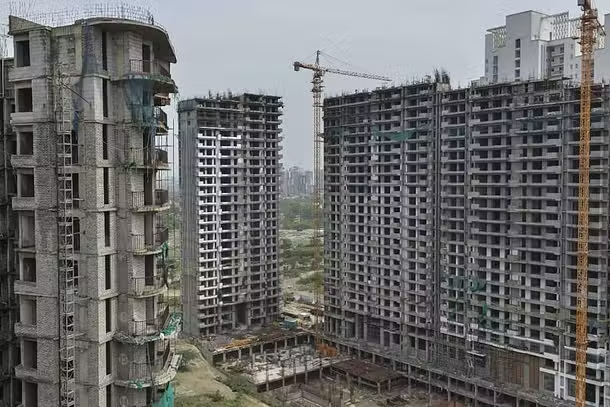Developers anticipate the strong momentum in premium and luxury housing to carry forward into 2025, following a remarkable 2024 characterized by robust pre-sales and rising prices. However, the future of affordable housing remains unclear, as developers increasingly move away from the segment and homebuyers hesitate due to high interest rates and inflationary pressures.

The year 2024 marked a remarkable chapter for India’s residential real estate sector, with pre-sales expected to reach a staggering ₹5.1 lakh crore across the top seven cities, as reported by JLL. Despite this milestone and a moderate 10–11% increase in home prices, the growth in square footage has been limited, highlighting a concentration on high-end properties. Analysts suggest that challenges in affordable and mid-segment housing may persist into 2025 unless inflation eases and the Reserve Bank of India relaxes its monetary policy.
Luxury and premium housing segments have led the market, with demand outpacing other categories. A Colliers report projects that the luxury and ultra-luxury housing market will continue to expand in 2025, while the affordable segment struggles due to rising interest rates and inflationary pressures. Developers have been selective about launching new projects, favoring ready-to-move-in homes and branded developments, which have gained popularity since the COVID-19 pandemic.
The premium housing boom was evident as developers like DLF experienced overwhelming demand. For instance, DLF’s Privana West sold out within three days of its launch, driven by high-net-worth individuals (HNIs) and non-resident Indians (NRIs). Similarly, Mumbai’s metropolitan region has seen increased activity, with developers from Delhi NCR and Bengaluru entering the market, while Mumbai-based developers explore opportunities in Bengaluru and NCR.
At the same time, luxury housing in tier-2 and tier-3 cities gained traction, supported by infrastructure improvements and evolving homebuyer preferences. Industry leaders like Boman Irani of CREDAI and Mohit Goel of Omaxe Group emphasized the importance of redefining affordable housing, expanding tax benefits, and fostering infrastructure development to enhance market accessibility.
However, the affordable housing segment faced headwinds, with sales slowing due to high borrowing costs and stagnant wage growth. Experts, including Abhishek Kiran Gupta of IndexTap, have called for policy interventions, such as reduced taxation for homes priced under ₹45 lakh and increased township development, to revitalize this segment.
Looking ahead, the residential real estate sector is poised for further innovation and growth, with PropTech, AI, and sustainability leading the way into 2025 and beyond.








